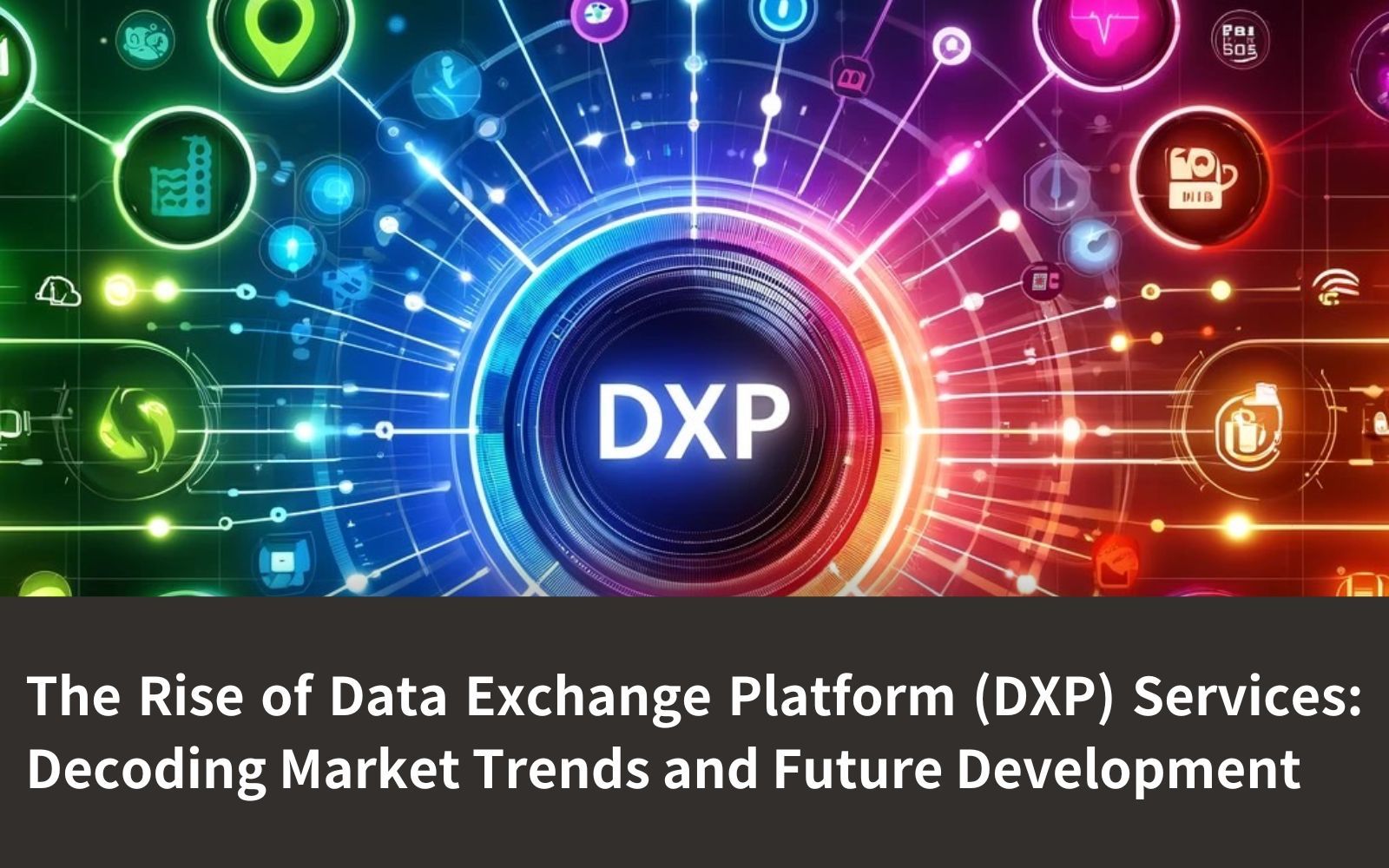The Rising Demand for Data Exchange Platforms: A Market Analysis of DXP vs RMN vs DCR
As the global economy becomes increasingly data-driven, Data Exchange Platforms (DXPs) are emerging as a critical foundation for inter-enterprise data sharing and collaboration. According to an analysis by MRFR, the market size of DXP services reached approximately $6.07 billion in 2022 and is expected to expand rapidly with a compound annual growth rate (CAGR) of 17.91% from 2024 to 2032.
Meanwhile, Retail Media Networks (RMNs) have quickly gained traction as a new favorite in the media landscape. How do these two intersect? Additionally, what role does the less-discussed Data Clean Room (DCR) play in this ecosystem? This article explores the current market landscape from a DXP perspective, providing a detailed analysis and comparison of DXP, RMN, and DCR.
Data Sharing: The Core Value of the Digital Economy
The core value of Data Exchange Platforms (DXPs) lies in facilitating data sharing and collaboration, addressing the issue of data silos between enterprises. These platforms enable secure and efficient data exchanges, enhancing decision-making capabilities and driving innovation.
Interestingly, Retail Media Networks (RMNs) also revolve around data exchange. Consider a scenario where Brand A purchases ad placements on Amazon. Essentially, Brand A is exchanging its customer data to target a similar audience on Amazon’s platform, buying exposure to advertising slots optimized for those shared data insights.
Data Clean Rooms (DCRs), on the other hand, are another intuitive form of data exchange platform. The key distinction lies in their operational focus. While DXPs emphasize ongoing and consistent data exchange, DCRs prioritize data privacy and ephemerality. After completing a specific data-sharing task, DCRs ensure no residual data remains, highlighting their emphasis on maintaining confidentiality.
Market Drivers for Data Exchange Platforms
Several factors contribute to the growing demand for DXPs:
Increasing Need for Data-Driven Decisions
Enterprises across industries are recognizing the value of data, especially for improving operational efficiency, gaining customer insights, and staying competitive. DXPs allow organizations to access integrated insights from multiple sources, helping them analyze business and market trends comprehensively.The Rise of Cloud Computing
Cloud-based deployment models have become mainstream due to their flexibility and cost efficiency. DXPs leverage cloud technology to enable on-demand access to data resources while reducing reliance on local infrastructure.Integration of AI and Machine Learning
Advanced technologies enhance the accuracy and efficiency of data processing. DXPs incorporate AI-driven analytics to promote automated operations and innovative applications.
The Shift in Privacy Policies and the Increasing Importance of Data Exchange Platforms in the Post-Cookie Era
In 2024, Google announced a delay in phasing out third-party cookies, instead promoting its Privacy Sandbox initiative. This shift has had a profound impact on the digital advertising market.
As the two major browser giants intensify their "privacy" battle, user awareness of privacy has significantly increased. The absence and fragmentation of cookies have become a reality. Regardless of your stance, it is essential to move beyond cookie-dependent thinking and seek innovative technological solutions to address the information gaps created by the lack of cookies, ushering in a new era of digital advertising transformation.
In this emerging "low-cookie world," Data Exchange Platforms (DXPs) are seen as effective tools to bridge the information void left by the gradual disappearance of third-party cookies.
Applications of Data Exchange Platforms in Advertising
Precise Targeting: By integrating data, DXPs enable the creation of detailed consumer profiles.
Personalized Marketing: They facilitate highly customized advertising, enhancing user engagement.
Ad Measurement and Attribution: DXPs help analyze ad performance and optimize marketing strategies.
Consequently, increased data sharing and collaboration between enterprises have become prominent market trends for DXP services. These platforms facilitate secure and efficient data exchange, empowering businesses to gain valuable insights, improve decision-making, and drive innovation.
The key market drivers include the growing demand for data-driven decision-making, the rise of the data economy, and the proliferation of diverse data sources and formats. Organizations are increasingly recognizing the value of data and the necessity of leveraging it to gain a competitive edge. DXPs play a critical role in unlocking data potential by enabling secure and controlled exchanges.
The following sections will provide a detailed analysis and comparison of DXP vs. RMN vs. DCR as discussed in this article.
Comparison of Data Exchange Platforms (DEPs), Data Clean Rooms (DCRs), and Retail Media Networks (RMNs)
Future Outlook: The Impact of Data Exchange Platforms
Fostering Industry Collaboration:
Data exchange platforms will further enhance cross-industry cooperation, driving the sharing and application of data resources.
Collaboration among governments, enterprises, and research institutions will become more integrated, promoting innovation and efficiency.
Driving Digital Transformation:
With the integration of data exchange platforms, artificial intelligence, and IoT technologies, businesses can achieve smarter operations.
Data-driven insights will become a critical factor in boosting competitiveness.
Expanding Application Scenarios:
The application of data exchange platforms will continue to grow across industries, from finance and healthcare to agriculture.
In the future, these platforms may play a greater role in areas such as environmental protection and smart cities.
Conclusion
Data exchange platforms are not only a technological innovation but also a key driver of a data-driven future. From addressing privacy challenges to enhancing industry efficiency, this technology offers businesses a new engine for growth in various aspects. With the introduction of more advanced technologies and the expansion of market demands, the potential of data exchange platforms is worth anticipating, as they are set to play an even more significant role in the future digital economy.
Tagtoo is committed to helping Taiwan's online industry build a sustainable and healthy data exchange ecosystem. We welcome interested companies to connect and share insights with us.
